$50,000 grants awarded to Dr. Hala Saneh & Dr. Matthew Brown
Connecticut Children’s Connection is a community of members committed to supporting Connecticut Children’s mission and providing the care children and families deserve. Members have chosen to pool financial resources, volunteer their time, and connect with professionals from across industries to raise awareness and support for Connecticut Children’s research initiatives.
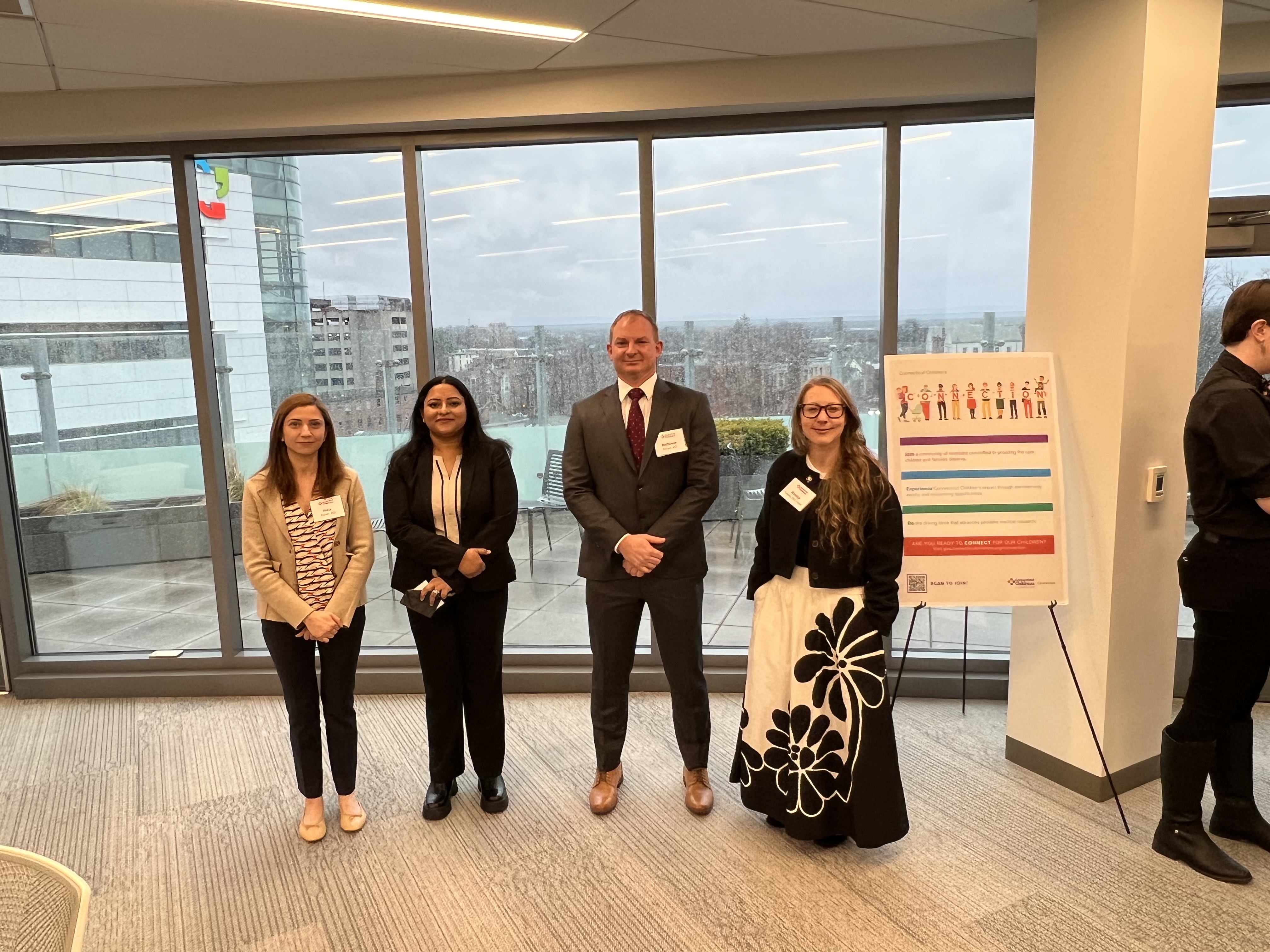
In conjunction with Medical Center Leadership, nine promising research scientists were invited to submit a request for proposal (RFP) for one of two $50,000 awards. The RFPs were reviewed by a committee of Connecticut Children’s Connection Visionary Members and four finalists were invited to present their research proposals at Connecticut Children’s Connection Funding Selection Event on Tuesday, April 2 at the Bone & Joint Institute:
- Matthew Brown, MD, Orthopedic Surgeon
Cause of the variant morphogenesis, increased tear risk, and impaired healing response in an abnormally shaped meniscus. - Ashley Howard, DO, FAAP, Pediatric Infectious Diseases and Immunology
A neonatal consortium research study on outcomes of Congenital & Cytomegalovirus (CMV), a virus related to the herpes virus. - Sanjukta Majumder, PhD, Sr. Research Scientist, Fetal Surgery
Delineation of molecular mechanisms of insulin-like growth factor 1 (IGF-1) signaling in endothelial cells, a single cell layer that lines all blood vessels, and its implications in fetal growth restriction. - Hala Saneh, MD, Neonatologist
Evaluating the efficacy and safety of stem cell-derived extracellular vesicles to regenerate the premature lung in preclinical disease models.
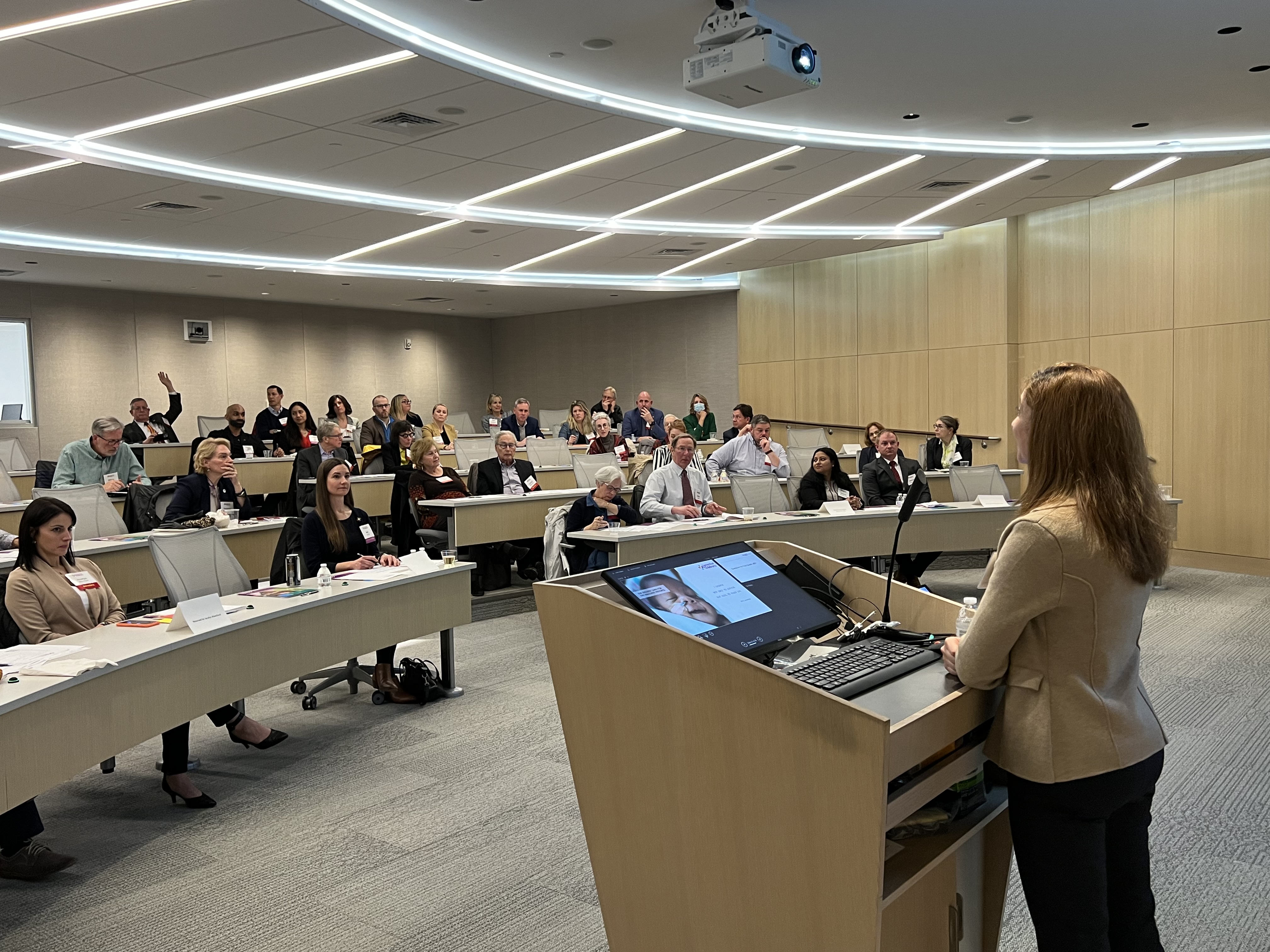
The presentations were reviewed and voted on by the Visionary Members in attendance, with the support of William Zempsky, MD, who served as Connecticut Children’s Connection’s Research Liaison. Visionary Members are those who donate at least $1,000 as individuals or $1,500 as couples to Connecticut Children’s Connection.
We are pleased to share that Matt Brown, MD, and Hala Saneh, MD, were each selected to receive a $50,000 award from Connecticut Children’s Connection for the following research projects:
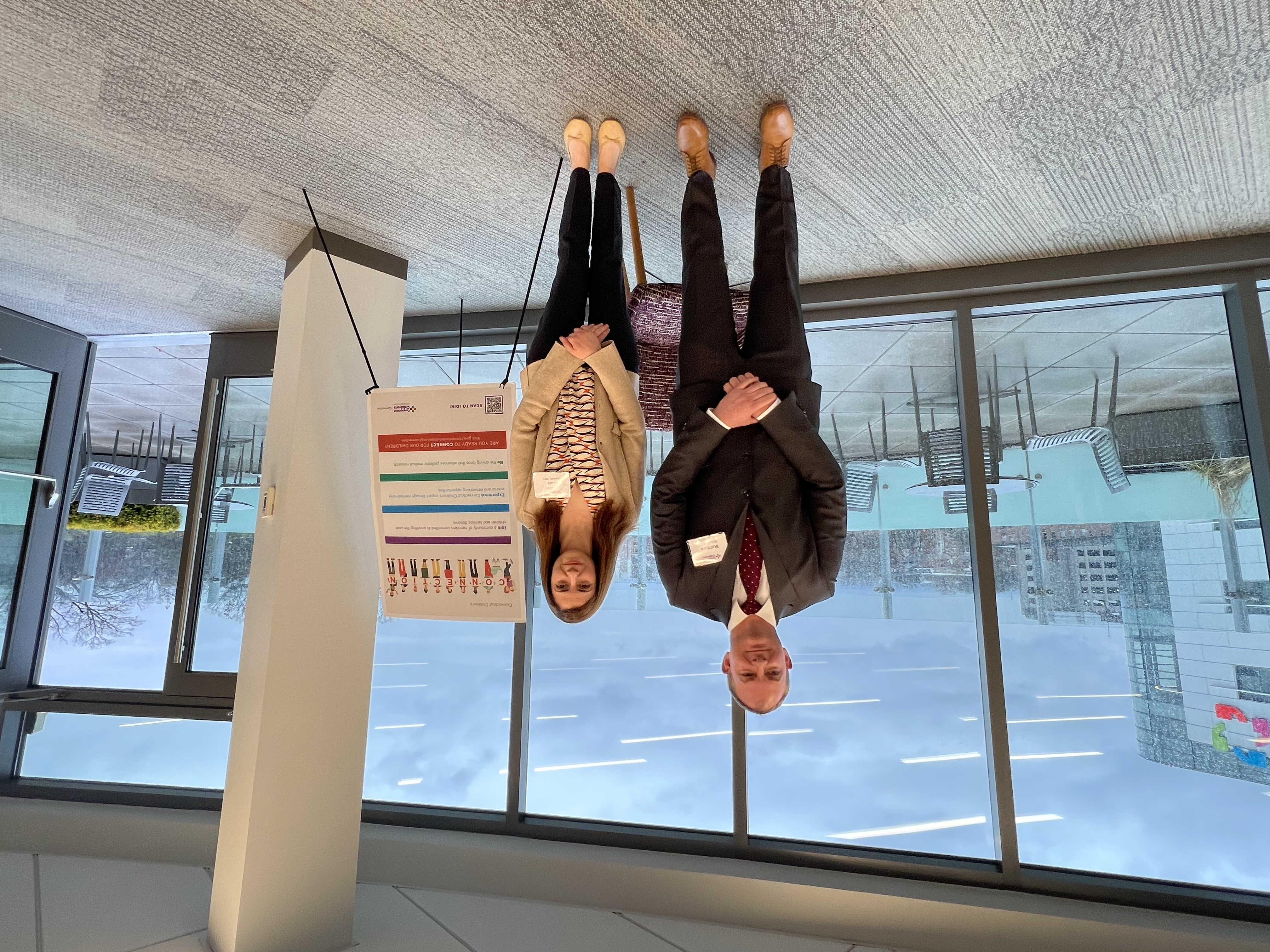
Harnessing Discoid Meniscus Wonders: Pioneering Regenerative Solutions for Children's Meniscal Injuries
Research Grant Applicant Name: Matt Brown, MD
Division: Connecticut Children’s Sports Medicine Research Project
Title: Leveraging the Unique Properties of Discoid Meniscus Toward Regenerative Healing of Pediatric Meniscal Tears
Executive Summary: The long-term goal of this research is to develop a mechanistically based biologic approach for augmenting surgical repair of pediatric and adult meniscal tears. This work is important because there currently exists a 17-37% failure rate for meniscal tear repair in children and young adults, necessitating re-operation, impairing quality of life and activity, incurring unnecessary healthcare burden for society, and greatly increasing risk among those affected for devastating premature osteoarthritis. In this project, we will identify factors present in pediatric meniscal tissue that are functionally linked to meniscal healing potential. Specifically, we will use single-cell RNA sequencing on discarded tissue obtained during meniscus surgery. This is a cutting-edge approach that groups cells together by the similar genes that are expressed. We will use this technique to identify for the first time the cells and factors that are in meniscal tissue from normal pediatric patients and from patients with congenital “discoid meniscus”. We expect to identify multiple differentially expressed genes that are candidates to improve meniscus healing and growth. In this project, these novel factors will be validated in the lab through tissue localization studies, and clinically through evaluation of patient outcomes after their surgery. The project team leverages the collective experience of 4 investigators from 3 institutions (CCMC, UConn Health and Jackson Labs) and is ideally positioned for success in achieving its goal. The results of the project will provide critical data essential to support future large external grants to expand the study and to carry out further preclinical validation of candidate pro-healing factors. In the long term, this project may lead to approaches for improved treatment for meniscal tears in normal or discoid menisci with the possible elucidation of how to regrow meniscal tissue.
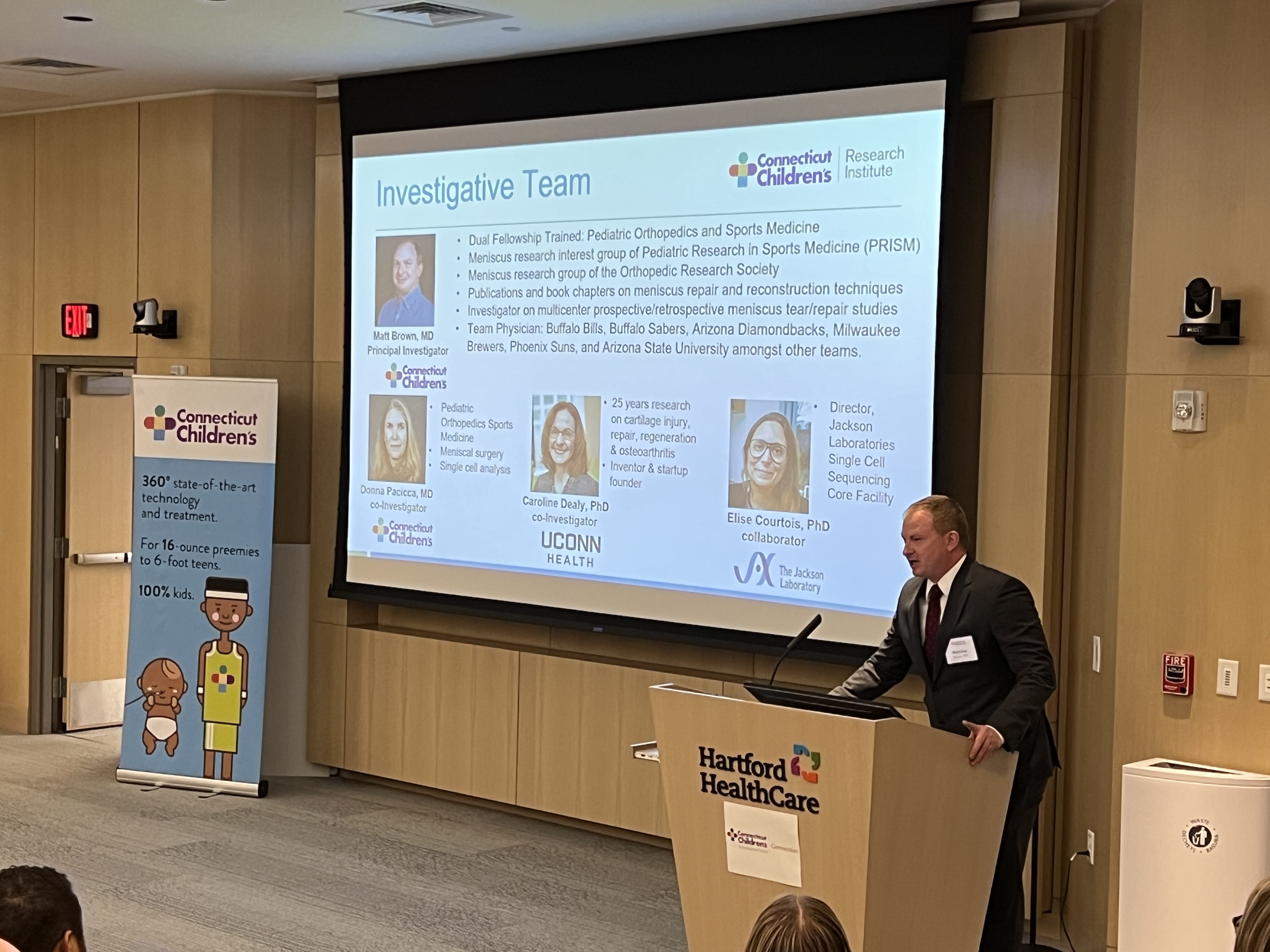
Unveiling the Potential: The Role of Stem Cells in the Future of Regenerative Medicine
Research Grant Applicant Name: Hala Saneh, MD
Department: Neonatology Research Project
Title: Evaluating the Efficacy and Safety of Stem Cell-Derived Extracellular Vesicles in a Preclinical Animal Model of Premature Lung Disease
Executive Summary: Bronchopulmonary dysplasia (BPD) is the most common complication of prematurity and is associated with significant neonatal mortality and morbidity. Current interventions offer some preventive benefits and palliative care post-injury; however, no options effectively restore lung development. Stem cells, including human induced pluripotent stem cells (hiPSCs) and mesenchymal stem cells (MSCs), have shown promise in repairing injury in animal BPD models, and evidence suggests they exert their effects via paracrine mechanisms mediated by their extracellular vesicles (EVs). MSC-EVs were recently shown to improve lung outcomes following hyperoxic exposure in animal models. However, data does not exist on hiPSC-EVs, which is a novelty in this proposal. We seek to evaluate the efficacy and safety of EVs derived from hiPSCs and BM-MSCs (bone marrow MSCs) in a preclinical rat model of premature lung disease. Our model is uniquely designed to recapitulate the multifactorial disruption in lung development. Injury will be induced by the combination of maternal endotoxin exposure and high oxygen concentrations at birth. We aim to demonstrate efficacy at a transcriptomic, structural, and functional level. Safety assessment will focus on risk for immunogenicity and tumorigenicity. If effective and safe, EV-based therapies will then serve as a novel promising approach to prevent and/or treat BPD, and ultimately improve the quality of life of surviving preemies. If a grant is made, funds will cover animal costs (acquisition, maintenance, procedures), supplies (cell lines, media, chromatography columns, antibodies, endotoxin), core facility charges (flow cytometry, histology, microscopy, molecular core, genomic core), publication costs, and advanced training courses.
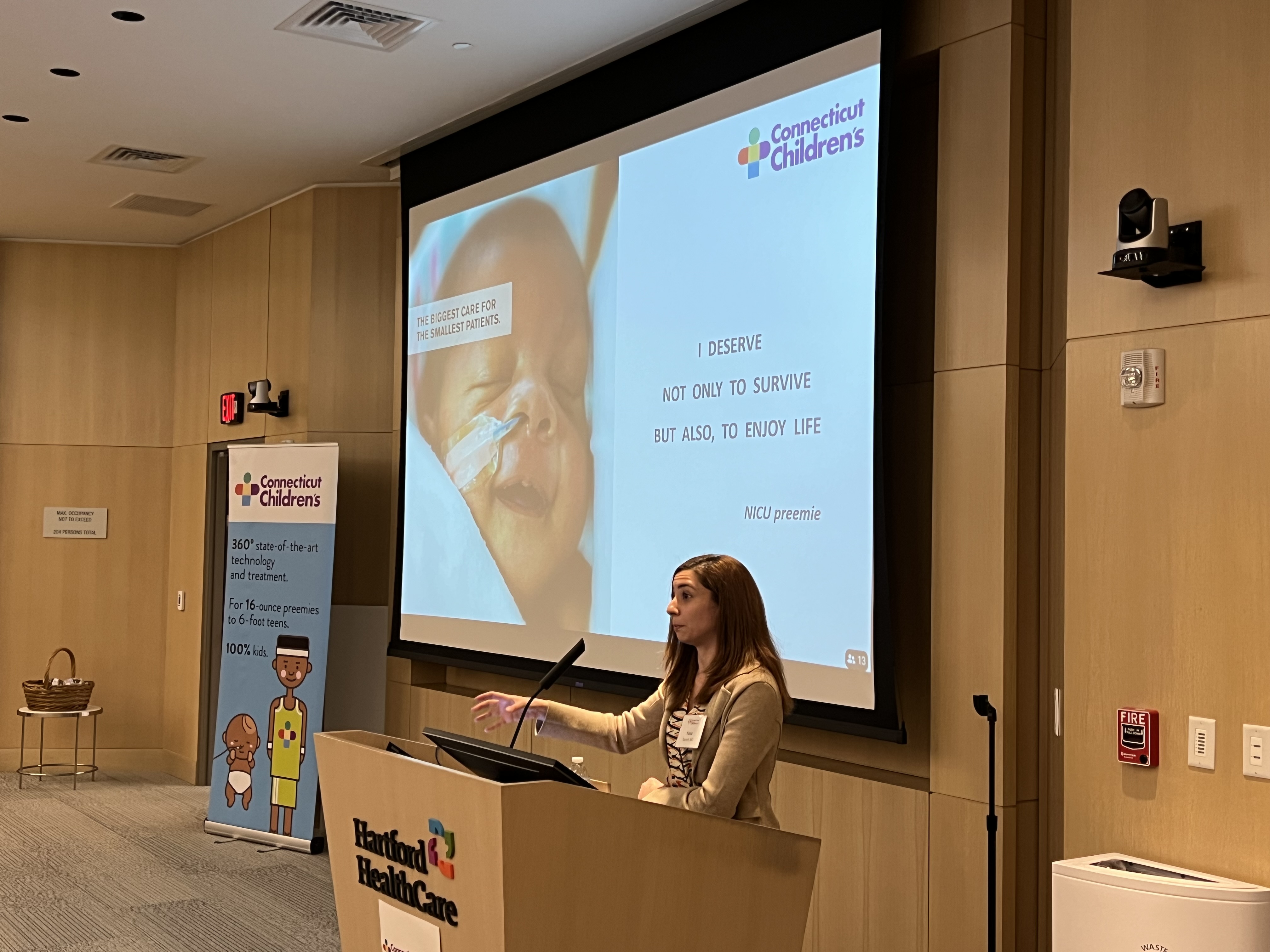
Join Us in Making a Difference
Now, through August 30, 2024, we are hosting a membership drive, seeking compassionate individuals who share our vision for a healthier future for children. By becoming a member, you’re not just joining a community; you’re making a powerful statement of support for pioneering research and the children who benefit from it. Every member plays a crucial role in our mission. Together, we can continue to support groundbreaking research and ensure that every child receives the care they deserve. Become a member today, and be part of a community where innovation, care and hope converge to create healthier futures for children everywhere.
Your support can change lives. Let’s make a difference, together.
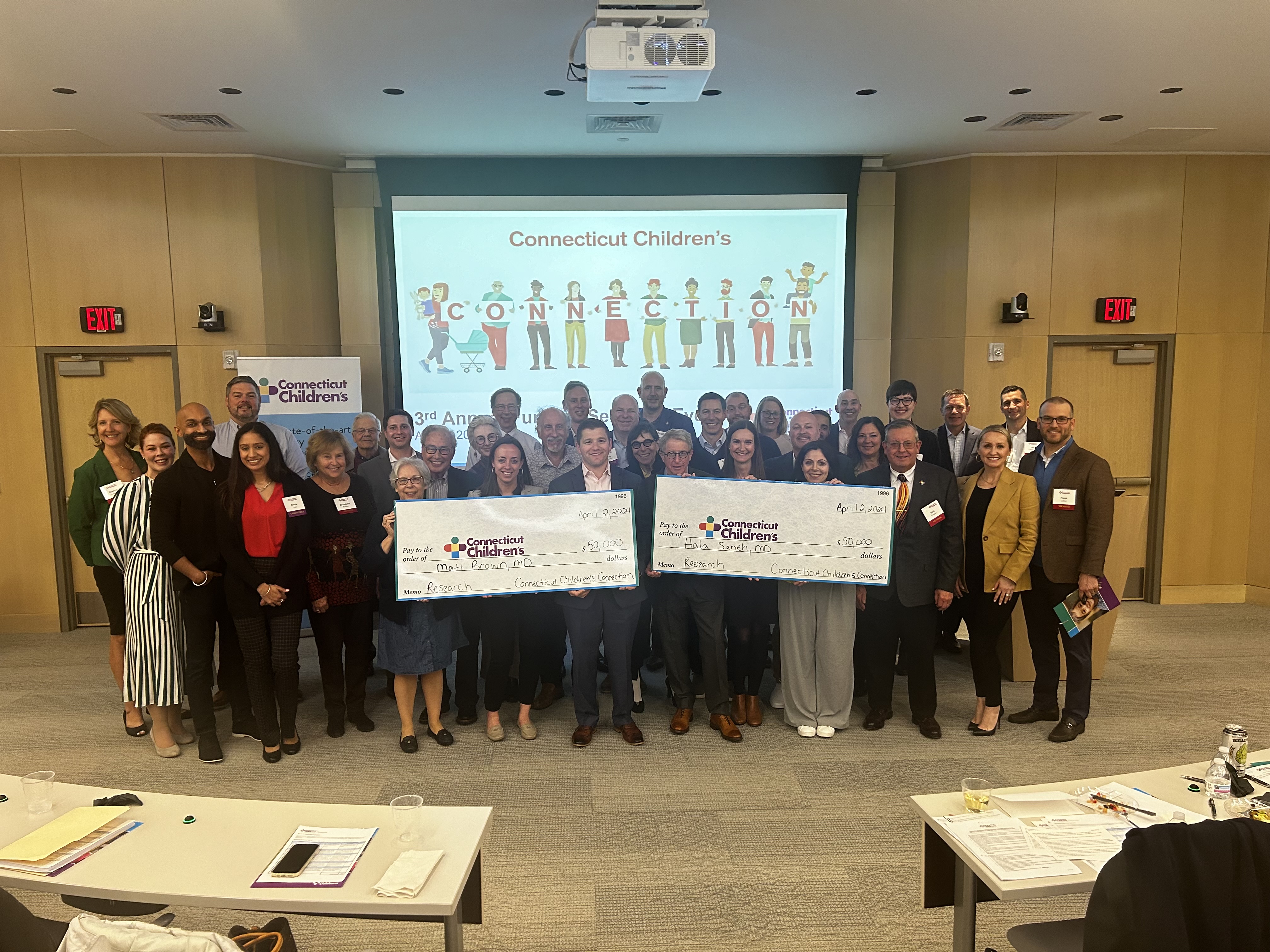
Latest Articles

$1 Million Gift from Big Y Supports Connecticut Children's New Clinical Tower and Expanded Pediatric Services

A New Era of Care Begins: Connecticut Children’s Celebrates the Opening of the New Clinical Tower
